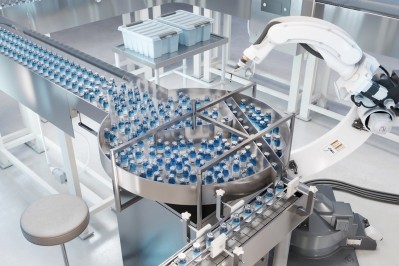Three Indian CDMOs ready to seize the BIOSECURE Act opportunity

Spearheading this effort is the BIOSECURE Act, a bipartisan initiative gaining traction in Congress with the potential to reshape America's defense against pandemics and biological threats.
Central to the bill is its intent to regulate collaborations between U.S. biopharmaceutical firms and select Chinese entities flagged for potential national security risks.
Notably, major players like WuXi AppTec, WuXi Bio, BGI Genomics, MGI, and its subsidiary Complete Genomics find themselves in the crosshairs.
By slashing federal funding for firms partnering with foreign adversaries' military or intelligence, the act aims to safeguard U.S. biopharmaceutical research to preserve national security and American ingenuity.
However, if the bill passes and companies must cut ties with China, it could spark a global recalibration in the pharma industry. With its burgeoning biotech sector, skilled labour force and competitive cost advantages, India could be a strong contender to fill this gap.
Bio Pharma Reporter spoke with three Indian CDMOs, all of which are attending Bio International 2024, who are hoping to capitalize on this opportunity.
Syngene
For Syngene’s senior vice president, Alex Del Priore, the opportunity for India to thrive exists 'with or without' the BIOSECURE Act.
“We have been observing a steady change since the pandemic; global pharma companies increasingly started looking to India and Southeast Asia as alternative supply chain destinations. However, the recent news in the USA has clearly accelerated these supply side changes coming out of the backend of the pandemic – i.e. the need for resilience and also to not ‘put all your eggs’ in one country or region."
Syngene offers a comprehensive suite of services spanning the entire drug lifecycle, from target selection through development to commercial production. “Syngene’s team of over 6,000 scientists function as an extension of research teams in pharma companies, pushing the boundaries of scientific discovery,” Priore highlights.
This approach has attracted partnerships with 11 of the top 15 pharmaceutical companies globally, including GSK, Janssen, Zoetis, Merck KGaA, Amgen, Baxter, and Bristol-Myers Squibb.
The company claims it is 'well-positioned' to capture opportunities from dual sourcing dynamics, helping clients mitigate risks associated with over-reliance on China.
“We have enhanced our dual supply chain strategy, offering both China-based and China-independent sourcing options for raw materials, intermediates, and starting materials,” Priore said.
Additionally, Syngene is significantly expanding its biomanufacturing capabilities with investments such as the acquisition of Unit III, which will include 20KL of single-use drug substance capacity and the ability to fill up to one million vials per day by late 2024. The CRDMO is also incorporating advanced technologies like CAR-T cells, mRNA, Antibody-Drug Conjugates (ADCs), and oligonucleotides into its services.
Above all, quality remain paramount for the company. "We operate to a single standard of global science, driven by excellence and a high compliance regulatory mindset. Whether it’s the US FDA, European, or Indian regulators, we meet their standards every day," Priore continues.
The senior vice president attributes the growth of the Indian market to its skilled workforce and strong government support, with India boasting 'a significant pool of skilled scientists, researchers, and technicians, with a high output of STEM graduates annually'.
Government initiatives, such as the Promote Research in Pharma (PRIP) scheme and the Production Linked Incentive (PLI) scheme, also provide robust support for R&D and manufacturing.
Enzene
Enzene’s CEO, Dr. Himanshu Gadgil, echoes the sentiment that in the wake of the BIOSECURE Act, the Indian CDMO market stands poised for growth.
“The BIOSECURE Act could create a significant opportunity for the Indian CDMO market to thrive. The Act and related changes are prompting several Western pharma, biotech, and other life sciences players to revisit their strategy," Gadgil said.
“As geopolitical tensions and supply chain disruptions rise, there's a noticeable shift in interest towards our facilities, reflecting the need for reliable and diversified manufacturing solutions. This has led to increased customer visits and inquiries, highlighting the potential for Indian CDMOs to meet the growing demand for biologics and advanced manufacturing technologies.”
Enzene plans to seize this opportunity by leveraging its EnzeneX technology, as well as opening its new facility in New Jersey later this year.
“EnzeneX revolutionizes bioprocessing with a fully connected continuous manufacturing (FCCM) process for mammalian-based systems. It offers up to 10 times greater productivity, a 40-45% reduction in cost of goods, and a 70% decrease in footprint compared to traditional fed batch methods,” Gadgil added.
For Enzene’s CEO, the allure of the Indian market lies in its cost-effectiveness and commitment to high-quality manufacturing solutions.
"Indian CDMOs have evolved to rank at par with global counterparts, offering affordable manufacturing solutions and boasting a skilled workforce well-versed in Western regulatory guidelines."
“Enzene's focus on innovation, such as the development and application of our EnzeneX™ technology, has made complex and expensive biologics more accessible. This has particularly benefited smaller start-ups and biotechs by providing affordable manufacturing solutions.
“Furthermore, the increasing focus on biologics and advanced manufacturing technologies, combined with geopolitical shifts and supply chain diversification needs, has made India an appealing destination for companies and investors seeking reliable and innovative CDMO partners.”
Aragen
“The BIOSECURE Act and related changes are prompting several Western pharma, biotech, and other life sciences players to revisit their strategy," Ramesh Subramanian, chief commercial officer at Aragen Life Sciences, told Bio Pharma Reporter.
"We are in active discussions with several of our customers on their strategy forward so that we can be ready to meet their near-term/mid-term needs.”
However, he explains that the path forward is longer term, unlike during Covid times when customers were ‘moving rapidly and in panic mode’.
“As this is a long-term plan, we are continuously investing in capabilities, capacity, and talent to be ready for any strategic shifts. This includes a recent investment plan of $250 million to expand our Hyderabad R&D and manufacturing facilities, bringing online our biologics manufacturing capabilities by the end of the year to undertake GMP manufacturing, and expanding our discovery and manufacturing footprint in small molecules.”
Through strategic investments, the company is also expanding capabilities across small molecule and biologics businesses.
Recent additions include strengthening drug product service offerings and opening a biologics pilot plant in Bangalore capable of non-GMP production for batches up to 50 liters. Plans are also underway to add GMP manufacturing capacities to deliver batches at scales ranging from 200L to 2KL.
Furthermore, Aragen is augmenting large-scale biomanufacturing capacity at its California campus and focusing on niche areas such as oligonucleotides, peptides, and antibody-drug conjugates (ADCs).
For Subramanian, there are several ‘unique strengths’ that make India an attractive alternative in the CDMO space. These include a skilled English-speaking workforce, a strong track record of quality compliance with global regulatory approvals, and familiarity with Western quality expectations.
“The competitive landscape for the Indian CDMO sector is poised for significant evolution over the next five years, particularly due to the increasing focus on biologics and advanced manufacturing technologies,” he said.
“With evolving technology, there is an increasing focus on using the latest in digitization and digitalization technology, including AI and ML tools. This not only helps increase productivity and output but also improves processes and turnaround times.”
















